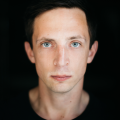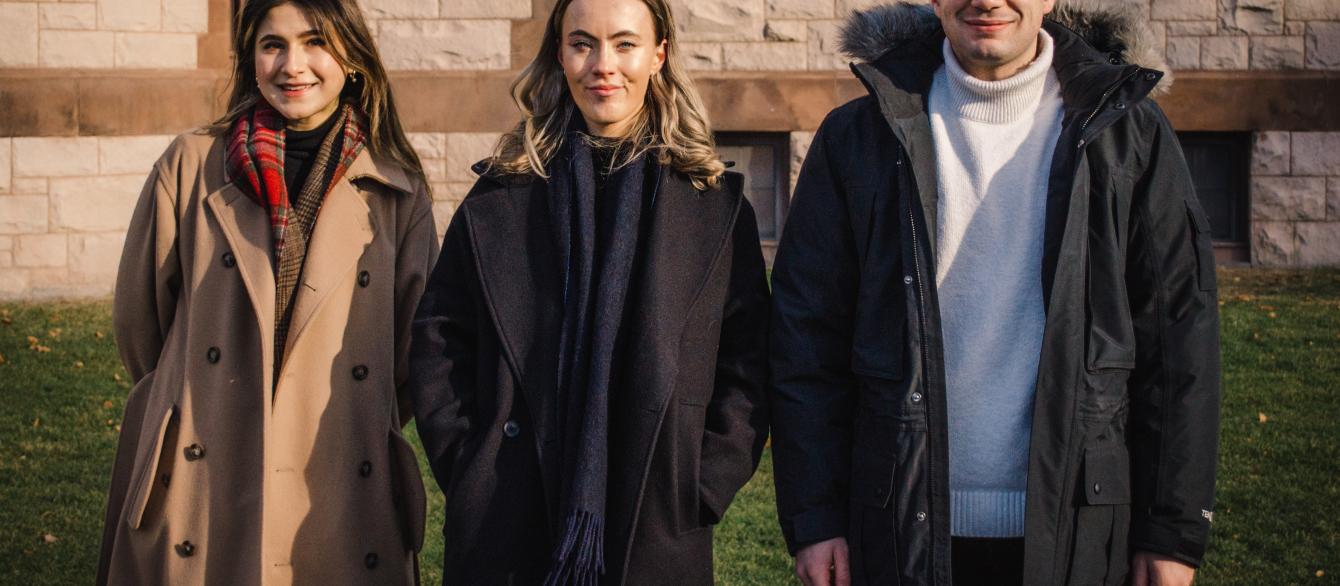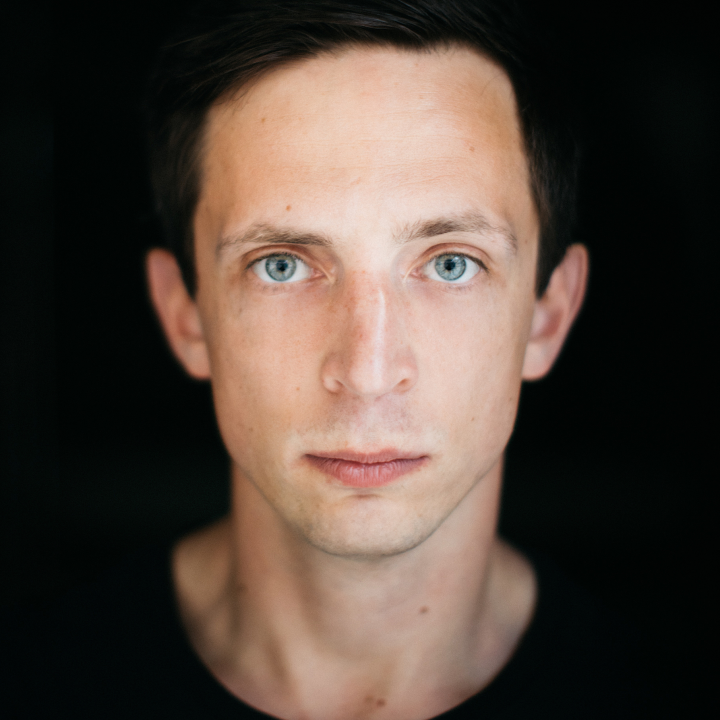Imagine typing a fanciful wish into an AI-powered image generator — say, “seven Russian imperial sailors in the port city of Nikolaev unloading their ship at the harbor in the 18th century” — and getting a plausible result. That alone is a gift, says grad student Olive Coles, who knows a thing or two about trial and error in trying to visualize historical events. But it’s also just one step of a journey: Now that they’ve honed a method, Olive and her colleagues at the Davis Center’s Imperiia Project are designing a webinar for teachers, showing them how to use generative AI with their own curricula to get students thinking critically about sources and encourage them to read visual material as carefully as they read texts.
Olive is one of this year’s three innovation fellows, REECA students who work closely with select Davis Center research initiatives on collaborative projects that deeply impact both the students and the program teams. The fellows — paired in 2024-2025 with Imperiia, the Program on Georgian Studies, and the Program on Central Asia — get monthly stipends, training and mentorship, ownership of their work, and the freedom to try, try again.
“[It’s ] all about experimentation. It's an opportunity to test new ideas, learn from mistakes, and develop real partnerships,” says Kelly O’Neill, director of the Imperiia Project, who feels she always learns “more from the fellows than they learn from me.”
The intellectual benefits certainly accrue on both sides. Julian Gonzales-Porier, this year’s innovation fellow for Georgian studies, notes that working with the program — where he’s finalizing a website that documents the history of the Georgian diaspora in the U.S. — has meaningfully expanded his own research interests. Inspired by a seminar on shifting geopolitical dynamics around the South Caucasus, Julian delved into researching Turkey’s foreign policy toward Georgia, especially as influenced by the Abkhaz community on Turkish territory (by some estimates the largest in the world). The Georgia program’s work “really provided me with a perspective shift,” Julian says, explaining that, before, he “had been plagued by an intellectual or contextual barrier that only allowed me to think about the space [of the South Caucasus] through the lens of Russia.” The Georgia program’s director, Natia Chankvetadze, Julian adds, has been “an incredibly useful mentor and resource.”
Nargis Kassenova, who directs the Central Asia program and is now working with her sixth innovation fellow, loves it when topics tackled during the fellowship impact students’ research and even career choices. One former fellow developed an interest in green energy transitions while working on a multi-year project led by Dr. Kassenova and started building up her expertise in the subject matter. She has stuck with it after graduation, working on sustainable development in Central Asia with various organizations, including the European Bank for Reconstruction and Development.
That renewable-energy project will continue this year, with a focus on Kazakhstan, and will inevitably be shaped by the latest Central Asia fellow, Darya Podgoretskaya, who brings a background in political science and sociology, as well as professional experience working at the U.N. on innovation and digitalization. “Energy transition is a perfect example of how complex issues require combining insights from politics, economics, and technology — a challenge I’m thrilled to take on,” Podgoretskaya says. “It’s like trying to solve a puzzle where the pieces keep changing shape — suddenly, I’m thinking about infrastructure financing and climate policy in ways I never expected.”
Dr. Kassenova, for her part, looks forward to more of the wonderful experiences she’s had with all her innovation fellows, who’ve made invaluable contributions to her program’s Caspiana digital toolbox, “Digital Silk Road” report, and research on the history of state-making in Central Asia. She calls her partnerships with these “enthusiastic, brilliant, skillful REECA students … a big source of joy and inspiration.”






